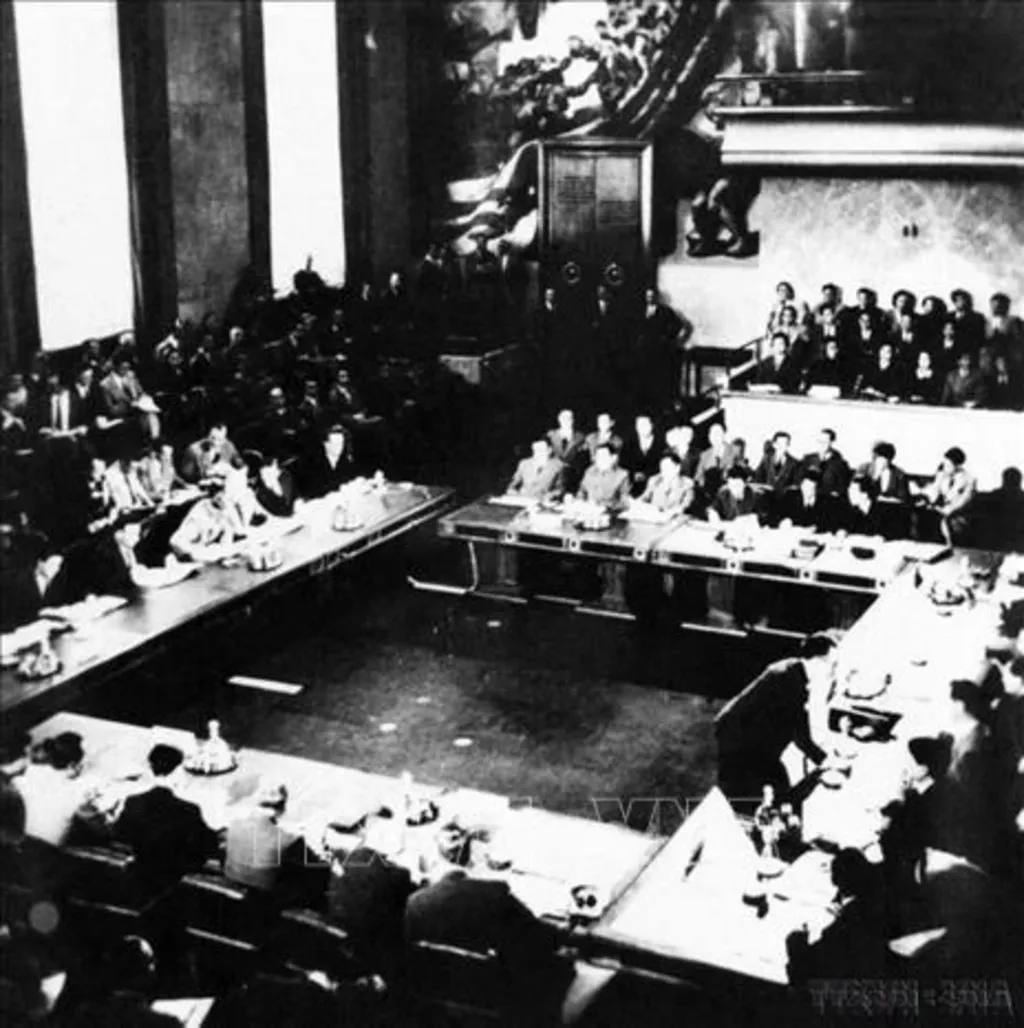 |
| An overview of the Geneva Conference in 1954__Photo: VNA |
The signing of the Geneva Agreement on Indochina 70 years ago marked an important milestone in the history of the world in general and Vietnam in particular, according to David Fernandez Puyana, Ambassador, Permanent Observer of UN University for Peace (UPEACE) to the UN and other international organizations in Geneva.
Speaking to the Vietnam News Agency (VNA) there on the occasion of the 70th anniversary of the agreement, he said that it demonstrates an important progress in the United Nations (UN) globalization process.
The official noted that the UN was founded in 1944 with only 54 independent countries but today it has nearly 200 member countries.
He said he believes this process represents part of the development history of the UN, which is directly related to colonialism. After the Geneva Agreement, there was a collapse of the colonial system, with a series of Asian-African colonialized countries gaining independence in the late 1950s and early 1960s. This is a great success of many countries, he commented.
The Geneva Conference on Indochina began on May 8, 1954. After 75 days of complicated and intense negotiations with 31 sessions, the Geneva Agreement was signed with contents directly related to Vietnam, including participating States’ respect for the independence, sovereignty, and territorial integrity of Vietnam, Laos and Cambodia, no interference in the countries’ internal affairs, ceasefire on the entire Indochina battlefield, and the French coalition army's withdrawal from Indochina, he noted.
He held that looking back to the 70-year agreement will help draw valuable lessons and experience for modern Vietnamese diplomacy.
Commenting on Vietnam's bamboo diplomacy strategy and the “four no's” policy of Vietnam, which clarify the country's neutrality without siding with one country against another, the ambassador underlined that it represents a new diplomatic method. He welcomed Vietnam's policies, especially those on upholding independence and self-reliance, which match the UN principles, prioritizing dialogue and the flexible settlements of issues.
Despite challenges, these policies show the world that Vietnam is a peace-loving country that always attaches much importance to dialogue, stated the UPEACE Ambassador, describing this as an important model in peace building.- (VNA/VLLF)









